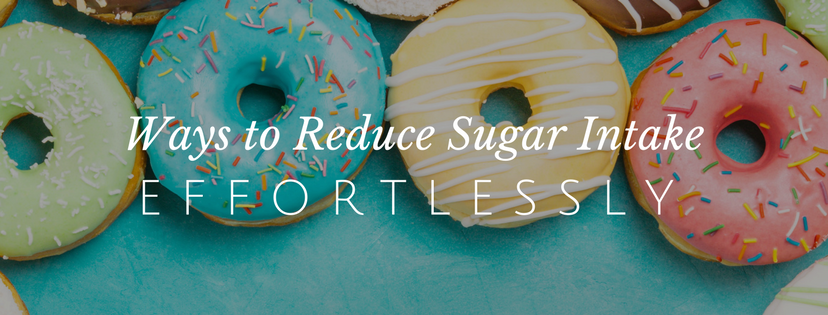Added sugar can be found in even the most unexpected products. From soda pop to fruit juices, candy bars to granola bars; there is sugar everywhere! Added sugar not only add sweetness to foods, but manufacturers add them
into products to serve various other functions: preservation, texture and mouth
feel, volume, and rich colour resulting from caramelization. They can be found
in:
- soda/pop drinks
- sweetened coffee or tea drinks
- cocktails
- energy or sport drinks
- fruit juice
- many store bought cereals, soups, salad dressings, and oatmeal
- dairy-based desserts such as ice cream or pudding
- candies such as gummies or halloween candy
- commercially baked goods such as cookies, muffins, cakes etc.
Why too much of sugar is bad for your health?
Sugar consumption is a major cause of obesity and many chronic diseases, such as diabetes. Here are some reasons why eating too much sugar is bad for your health:
Sugar consumption is a major cause of obesity and many chronic diseases, such as diabetes. Here are some reasons why eating too much sugar is bad for your health:
Type
2 diabetes: has been link to the habitual consumption of sugar-sweetened
beverages. Insulin regulates blood sugar levels. Therefore, exposure to high sugar intake over a prolonged period of time causes our body to stop responding properly to insulin. This results in the pancreas producing even more insulin. Eventually, the overworked pancreas breaks down. Then, blood sugars dangerously rise causing an increased risks for diabetes when the body becomes insulin resistant.
Weight gain: is connected to excessive intake of sugar. Having excess weight or obesity increases the risk for chronic illnesses such as hypertension, type 2 diabetes, coronary heart disease and various forms of cancers.
Fatigue: simple sugars can lead to spikes in blood sugar levels, which can come crashing back down making you feel tired and groggy. Complex sugars and carbohydrates break down slower, keeping the blood sugar more stable.
Cavities: there is a strong association between sugar-sweetened beverages and dental cavities in children though adults can get cavities just as easily.
Acne: High-sugar diets can increase androgen secretion, oil production and inflammation, all of which can raise your risk of developing acne.
Weight gain: is connected to excessive intake of sugar. Having excess weight or obesity increases the risk for chronic illnesses such as hypertension, type 2 diabetes, coronary heart disease and various forms of cancers.
Fatigue: simple sugars can lead to spikes in blood sugar levels, which can come crashing back down making you feel tired and groggy. Complex sugars and carbohydrates break down slower, keeping the blood sugar more stable.
Cavities: there is a strong association between sugar-sweetened beverages and dental cavities in children though adults can get cavities just as easily.
Acne: High-sugar diets can increase androgen secretion, oil production and inflammation, all of which can raise your risk of developing acne.
Excessive added sugar has many
negative health effects. Although consuming small amounts now and then is
perfectly healthy, you should try to cut back on sugar whenever possible. Fortunately,
simply focusing on eating whole, unprocessed foods automatically
decreases the amount of sugar in your diet.
Here are some tips on how to reduce your intake of added
sugars:
- Common table sauces can contain a shocking amount of sugar. Always read the label to make sure you choose sugar-free options or use herbs and spices to flavor your food. Read Also: Healthy eating at restaurants
- Swap sodas, energy drinks, juices and sweetened teas for water or unsweetened seltzer.
- Breakfast cereals are among the worst culprits for added sugar, along with pancakes, waffles and jams. Switch to low-sugar options such as eggs, oatmeal or plain yogurt.
- Drink your coffee black or use Stevia for a zero-calorie, natural sweetener.
- Sweeten plain yogurt with fresh or frozen berries instead of buying flavored, sugar-loaded yogurt. Read Also: Simple tips to stop sugar cravings
- Consume whole fruits instead of sugar-sweetened fruit smoothies. Some dried fruit also contains high quantities of added sugar. To avoid this, look for ingredients labels that say "100% fruit."
- Replace candy with a homemade trail mix of fruit, nuts and a few dark chocolate chips.
- Use olive oil and vinegar in place of sweet salad dressings like honey mustard.
- Choose marinades, nut butters, ketchup and marinara sauce with zero added sugars.
- Look for cereals, granola and granola bars with under 4 grams of sugar per serving. Read Also: Good carbohydrates vs. bad carbohydrates
- Swap your morning cereal for a bowl of rolled oats topped with nut butter and fresh berries, or an omelet made with fresh greens.
- Instead of jelly, slice fresh bananas onto your peanut butter sandwich.
- Make peanut butter at home, so you can skip the sugar on it. Use natural nut butters in place of sweet spreads like Nutella. Read Also: Super herbs
- Shop the perimeter of the grocery store, focusing on fresh, whole ingredients.
- In addition, keeping a food diary is an excellent way of becoming more aware of the main sources of sugar in your diet.
The best way to limit your added sugar intake is to prepare your
own healthy meals at home and avoid buying foods and drinks that are high in
added sugar.
Thank You!!

Comments
Post a Comment